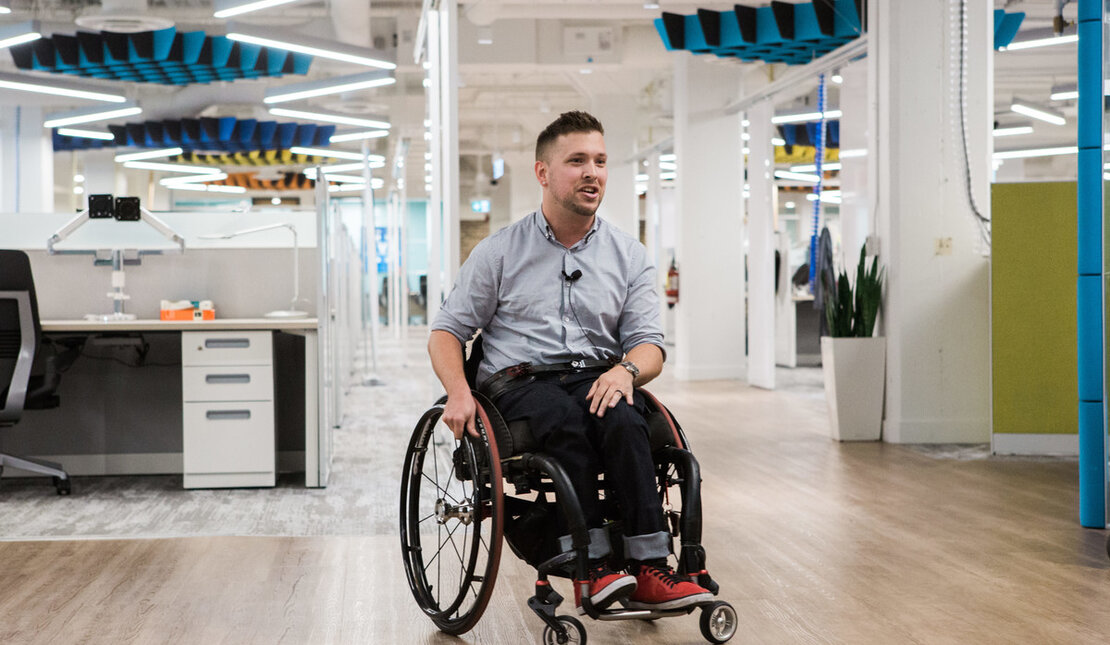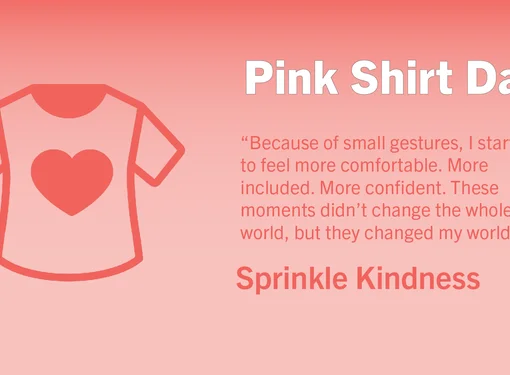How COVID-19 is Changing Remote Work for People with Disabilities
We’re living in an interesting time—the COVID-19 pandemic seems to have flipped our world, and how we function in it, upside down. Personally, I have felt the impact. As a professional speaker and accessibility consultant, a large portion of what I do requires me to travel—to events, conferences, and public spaces—all of which are at a standstill for the foreseeable future.
Social distancing, the closure of parks and playgrounds, and the insistence that we all stay and work from home can seem like scary things, but is there an upside? As an optimist and entrepreneur with a disability, I can tell you there absolutely is—in fact, I’ve actually been able to do the majority of my business tasks from home for over eight years now. With that in mind, not only are the changes we’re seeing in our society a good thing from a business perspective, but they are going to revolutionize the ways we live and work forever.
I know, you’re probably thinking “But Marco, how can this possibly be a good thing?” Well, if you happen to have a disability (and even if you don’t) there are many benefits that we’ll see as a result of our current socioeconomic situation.
Before I get into it, I want to acknowledge that this still isn’t an opportunity every person with a disability has. While it is terrible that it took a pandemic to make working from home a more viable option, my hope is that it will continue to become more accessible and benefit more people with disabilities.
Here’s my take:
1. Telecommuting and Remote Work Will Become Standard Practice:
For years, members of the disability community have been promoting the benefits of remote work. Not only does it support a reduced carbon footprint, but it opens up opportunities for people who wouldn’t otherwise be able to get to a physical location, and gives them the ability to share their talents in new ways. Plus, if you’re telecommuting, you might be able to get a few more minutes of valuable sleep and still make it on time to that important meeting.
2. The Introduction and Regular Use of Accessible Technology:
The ability for all team members to be seen and heard during meetings is vital—particularly in an effort to remove distance bias from the equation. Companies have come to realize this, and last year, Microsoft introduced the option to have live captions turned on through Microsoft Teams. Working from home also supports employees to use their own at-home computer setup for features like magnification, screen readers, and specialized lighting if they have certain preferences or photosensitivity.
3. Creating Consistent Schedules with Support Staff:
Some individuals with disabilities require additional supports from care workers for things like eating, bathing, and other hygiene routines. In some cases, this can prevent people from working in an office or elsewhere because these support workers are only able to be with them within their homes. Now, entirely new and predictable schedules can be created so that these folks can apply for jobs they wouldn’t have previously—all in a safe and healthy environment.
4. Proper Planning and Execution of Tasks
Do you find yourself easily distracted or pulled into conversations that make you lose track of time? If you’re working from home, you’ll have the benefit of not being distracted by co-workers, the constant buzzing of the vending machine, or the clicking of someone else’s pen. This may be particularly beneficial for some individuals with autism or ADHD.
My caveat to this is that there are many other things that can distract you in your home, so be sure to close the office door during periods that you’re working, set chunks of time in your calendar for working on specific tasks, and close your emails during those times so that you’re not tempted to jump on to something else prematurely.
5. Allowing Yourself to Have Meaningful Breaks
Being in isolation can take its toll on our mental health; conditions like anxiety and depression along with other forms of mental illness are the leading cause of disability leave in Canada. However, being at home puts us in a place of familiarity and comfort, so be sure to take advantage of that. Yes, social distancing is important, but when possible, go for a short walk, rest your eyes from your screen, and even take a few moments to have mindful meditation. It may sound silly, but it can have a profound impact on our mental health and the work that we produce. For me, taking a few minutes to listen to my favourite music and placing my hand on the plasma globe that sits on my desk completely recharges me. Remember, you’re at home, so do whatever works for you.
Regardless of what you do for work, we are on the precipice of a changing world. We might not be able to be in the same room as some of our co-workers, but that doesn’t mean that human connection isn’t important, so remember that, and make time for it. For people with disabilities, this can open up opportunities for earning an income and changing perspectives in ways that didn’t exist before. This is our opportunity to re-write the rules, do things a bit differently (arguably better), and envision a place where everyone can go everywhere—even if that means staying exactly where you are.







